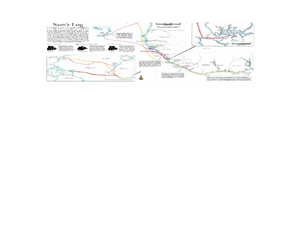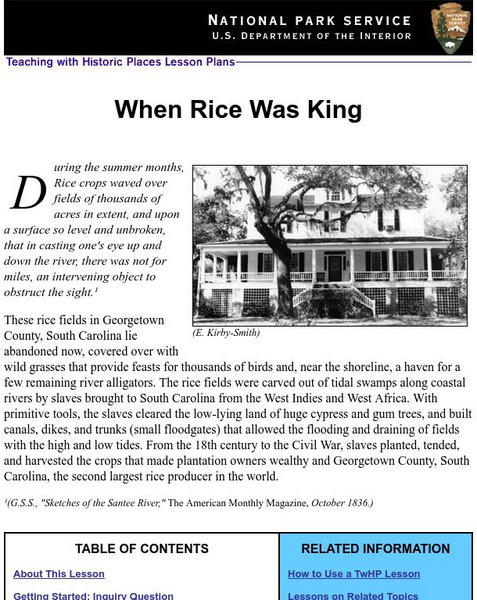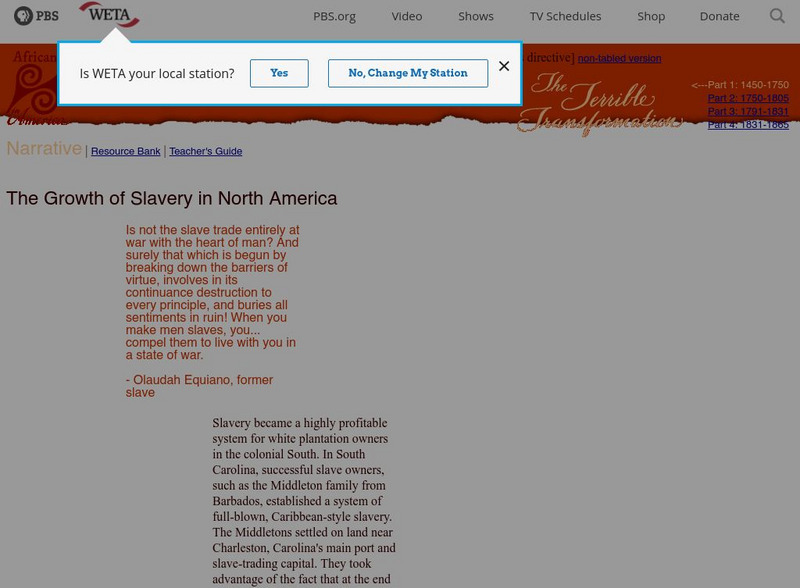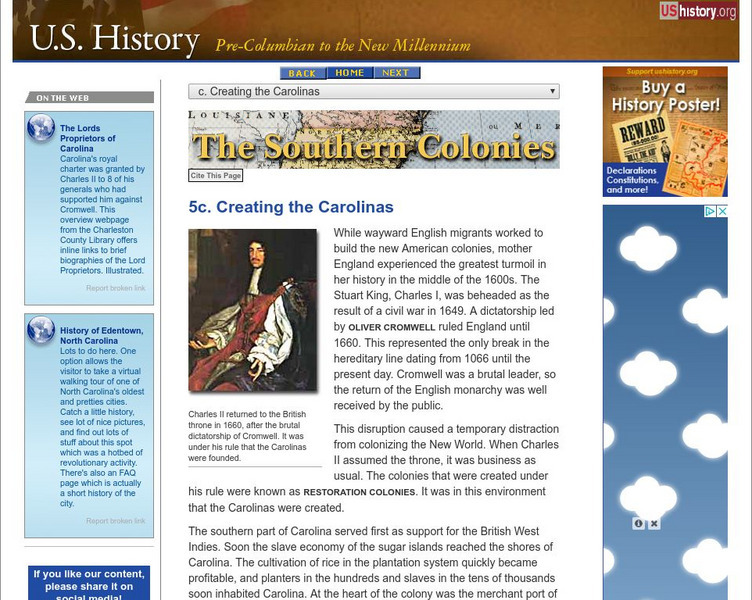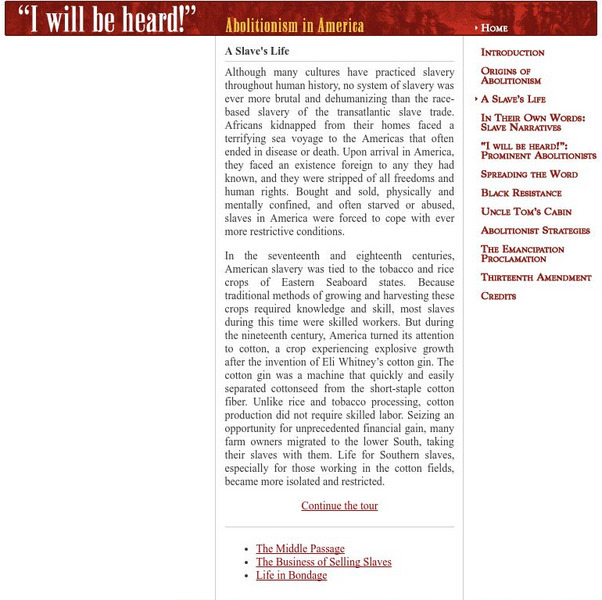Curated OER
Early Colonial Labor Force: Indentured Servants and Slaves
Students study the labor force used during Colonial America. In this Colonial America lesson, students discuss labor types used in the colonies. Students read about indentured servants and the use of African slaves. Students...
Curated OER
The Log Book of a Connecticut Slave Trade Ship
Seventh graders investigate the slave trade. In this Middle Passage instructional activity, 7th graders read excerpts of ship logs from Connecticut Slave Trade ships. Students respond to the provided analysis questions based on the...
Curated OER
Soil, Forest, and Land Exploitation
Learners debate over the cutting of rainforests in order to put people to work. They then brainstorm ways it may be possible to provide jobs for people and to preserve the rainforest.
Curated OER
National Park Service: Teaching With Historic Places: Plantation Agriculture
This resource lets you explore the workings of southern plantations.
Curated OER
National Park Service: Plantation Agriculture: Coastal Rice
Brief description of coastal rice plantations in the late 18th and early 19th centuries from the National Park Service.
Duke University
Plantation America: The Work of Slaves
On this webpage, the primary text contains selected entries from letters and journals. It also describes slaves delivering rice to Savannah, slave numbers, their condition on a plantation, how slaves were used, and a map and a drawing of...
Georgia Humanities Council and the University of Georgia Press.
New Georgia Encyclopedia: History and Archaeology: Rice
Discussion of the Georgia rice industry and its importance as an agricultural commodity from the 1750s until the Civil War.
Curated OER
National Park Service: Rice Cultivation in Georgetown County
Describes the planting, cultivating, harvesting, and preparing rice in the antebellum South. Contains review questions.
PBS
Pbs: Cet: Africans in America: Arthur Middleton
This lesson describes the rice cultivation on Arthur Middleton's South Carolina plantation and the importance of slaves to this cultivation. It also offers a description of the Middleton Family. Click on Teacher's guide for teaching...
Curated OER
National Park Service: Teaching With Historic Places: When Rice Was King
Lesson plan teaching the rice culture of Georgetown County, South Carolina in the 1700's.
PBS
Pbs: Cet: Africans in America: The Growth of Slavery in North America
Discusses the economics of slavery in South Carolina and its importance to the profitable growing of rice. It continues with ways the slaves were controlled and punished in South Carolina and Georgia. Click on Teacher's Guide for teacher...
Independence Hall Association
U.s. History: Southern Colonies: Creating the Carolinas
Read about the founding of the Carolina colony as a place of plantations and aristocrats. See how the farmers in the northern part of Carolina chafed at the control of the rich in the south and split off into North and South Carolina in...
University of Groningen
American History: Outlines: Colonial Economy
Whatever early colonial prosperity there was resulted from trapping and trading in furs. In addition, the fishing industry was a primary source of wealth in Massachusetts. But throughout the colonies, people relied primarily on small...
A&E Television
History.com: How the South Helped Win the American Revolution
British commanders attempted to reverse their floundering fortunes by launching a campaign in the South. There the British would find not just crops such as tobacco, rice and indigo that were vital to their economy, but stronger Loyalist...
Cornell University
Cornell University: Library: I Will Be Heard: A Slave's Life
A brief look at how slavery in America was tied to the crops grown in the South. See how the need for skilled workers was decreased and the use of unskilled slaves increased with the introduction of the cotton gin.



